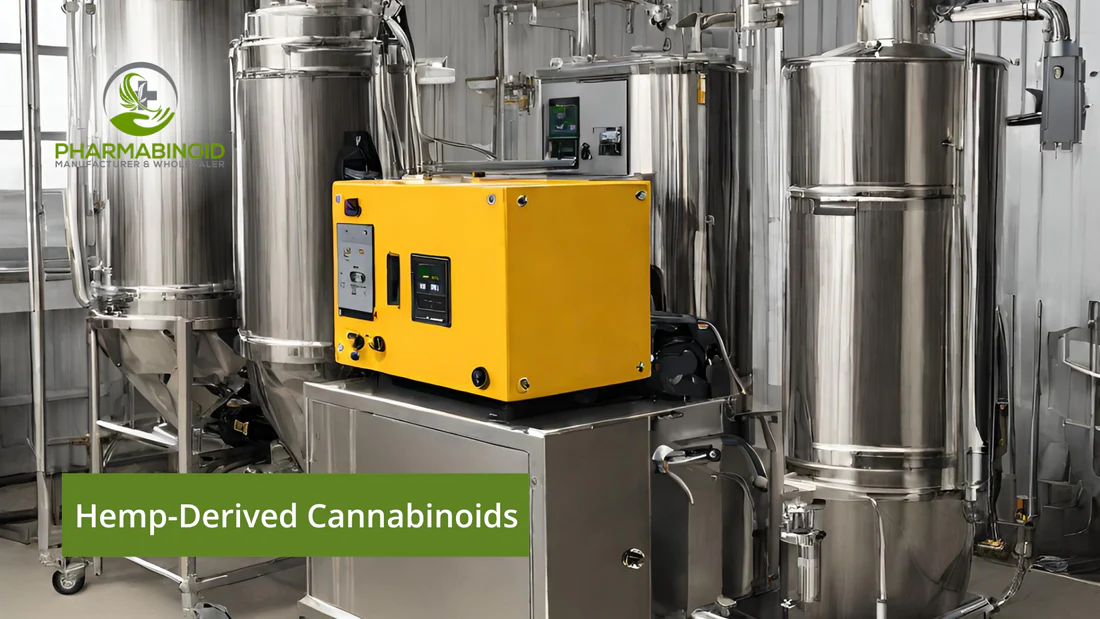
Exploring the World of Hemp-Derived Cannabinoids
Share
In recent years, hemp-derived cannabinoids have emerged as a remarkable and natural avenue for promoting wellness. From soothing anxiety to alleviating chronic pain, these compounds have taken the health and wellness industry by storm. In this comprehensive guide, we will journey through the realm of hemp-derived cannabinoids, understanding their properties, differentiating them from cannabis-derived counterparts, and exploring their regulatory landscape.
Understanding Hemp-Derived Cannabinoids
Hemp-derived cannabinoids, commonly known as CBD (Cannabidiol), are naturally occurring compounds found in the hemp plant, a variant of the cannabis sativa species. What sets them apart is their minimal THC content, less than 0.3%, which ensures that they do not induce the psychoactive effects associated with marijuana.
These cannabinoids interact with the body's endocannabinoid system, playing a vital role in maintaining balance and overall well-being. Research suggests that hemp-derived cannabinoids may offer numerous potential benefits, ranging from pain relief to anxiety management.
Hemp-Derived vs. Cannabis-Derived CBD
While hemp-derived cannabinoids have gained prominence, it's crucial to differentiate them from cannabis-derived CBD. As explained in this source, the key distinction lies in the THC content.
Cannabis-derived CBD often contains higher levels of THC, potentially leading to intoxicating effects. In contrast, hemp-derived CBD contains minimal THC, making it a suitable choice for individuals seeking the therapeutic benefits without the "high."
Regulatory Landscape
Understanding the regulatory framework surrounding hemp-derived cannabinoids is vital. As of September 2023, the FDA treats these products much like any other FDA-regulated items. This means they must meet specific quality and safety standards.
The FDA's involvement underscores the importance of purchasing hemp-derived cannabinoids from reputable sources and ensuring that products are accurately labeled.
The Versatility of Hemp-Derived Cannabinoids
One of the most compelling aspects of hemp-derived cannabinoids is their versatility. They are available in various forms, including oils, tinctures, edibles, and topicals, catering to diverse preferences and needs.
Additionally, hemp plants contain other valuable compounds like terpenes and flavonoids, which work in synergy with CBD to enhance its potential benefits. This holistic approach to wellness is gaining traction among users seeking a more comprehensive solution.
The Road Ahead
As research on hemp-derived cannabinoids continues to advance, we can expect even more exciting discoveries and applications. The journey toward fully realizing their potential is ongoing, but one thing is certain: hemp-derived cannabinoids hold the key to transforming our approach to health and well-being.
Conclusion
In conclusion, hemp-derived cannabinoids are emerging as powerful allies in the quest for natural wellness. Their non-intoxicating nature and potential health benefits have captured the attention of individuals seeking alternative solutions. It's crucial to grasp the distinctions between hemp and cannabis-derived CBD and stay informed about FDA regulations to make responsible choices.
Are you ready to embark on a journey into the world of hemp-derived cannabinoids? Explore the possibilities and take control of your well-being. To begin, consider visiting reputable sources like Healthline and Medical News Today, where you can find valuable information on these natural wonders.
Now, take the first step towards a healthier you!
